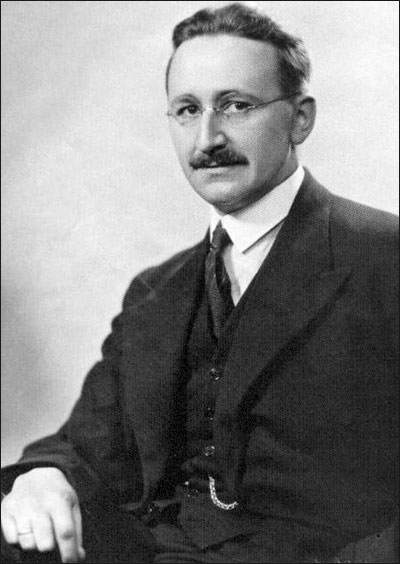Think Big! In defence of ideology
Features, Ideas, Politics - Posted on Wednesday, August 11, 2010 11:02 - 3 Comments
By Alex Andrews
In a recent Guardian ‘Comment is Free’ piece, Anthony Lerman laments the fact an anti-capitalist ideology has not emerged in the aftermath of the financial crisis, but wouldn’t really want to subscribe to one if it did. It’s difficult to believe that, as Lerman claims, no new ideas have emerged after the crisis or even the repetition of old ones. It is hard to see “the anti-globalisation movement directed at G8s and G20s” as having “run out of steam” when the City of Toronto just spent $1 billion protecting the leaders of the world from their citizens. When David Harvey can rustle up a Marxist analysis of the whole of the crisis which can be explained by a lovely animation, coherent analyses are not lacking and neither are alternatives.
Putting these issues aside, Lerman manages to obscure the influence of the most successful ideological movement of the 20th century – neoliberalism – unconsciously on his own thought. As the most successful form of capitalist ideology so far devised, neoliberalism has established far more than simply a ‘consensus’ among politicians, but the naturalised defaults of debate that Lerman too appears to subscribe to, likely against himself. Neoliberalism correctly understood as early as the late 1930s that it was not enough to simply explain the benefits of unfettered capitalism to national leaders but to neuter all opposing and alternative ideologies as being part of the same cloth, all steps on the “road to serfdom”. Lerman’s desire for “a fox-like, piecemeal, generalist approach” rather than “a hedgehog-like, all-encompassing ideology” sadly falls into this trap.
The desire for the piecemeal approach, where nips and tucks will somehow render the system fair, plays all too well into the idea that it was a few bad eggs that caused the crisis rather than a systematic question, as Lerman rightly notices. The prohibition against hedgehog thinking is a worse and particularly pernicious element of the ideology of capitalism. The taboo on any form of ideas opposed to capitalism, least they slip into ‘ideology’ is an example of what theorist Mark Fisher has termed capitalist realism: the end of capitalism, or even the modification of capitalism in its current form is not only impossible and dangerous, but quite unthinkable. At best, an attempt to move towards a more just and egalitarian society is naive adolescent idealism, cute, but disconnected from reality.
Even minor adjustments of the present in the name of mollifying some of the human consequences of cuts are foolish, since there is no alternative but to reduce deficits and please the rating agencies, despite reasonable Keynesians pointing out how this will force us into a double-dip recession. At worst, those thinkers hoping to move beyond capitalism are immediately complicit in the worst crimes of the 20th century, regardless of how often and how loudly they declaim them. Anti-capitalist thinkers simply subscribe to a form of fanaticism, an irrational inability to accept the world as it is, a position worthy of pathologisation, mockery and exclusion from popular debate. One only needs to read the hysterical reactions to a figure as mainstream as Noam Chomsky to recognise this is the case, or any Comment Is Free article mentioning the c- or s- word for that matter. Rather, what is required is hardheaded, practical politicians, who with no ideology but a grim determination to face economic realities, to busily implement market based solutions to the NHS and education as well as ensure that those responsible for the crisis itself are rapped lightly over the knuckles and the system that caused it, and will continue to cause future crises, is permitted to continue untouched while all others, particularly the poorest suffer the consequences. As Slavoj Žižek has pointed out, when politicians claim to lay aside their ideology they reveal their most ideological moment. Claims that ideology is absent should be taken as moments where it is likely that an ideology has become so naturalised and transparent that it no longer appears as such. Sadly its influence is clear on Lerman’s analysis, and the very division of the two types of thinking, as with many others. Such is the case with abandoning supposed hedgehog thinking, something Hayek’s motley band of economists, journalists and politicians at the Mont Pelerin Society never considered as they developed neoliberalism and planned to overturn the post-war settlement.
To abandon thinking big is to allow the unacknowledged lens to remain in place. The first step is to think boldly and to reject the terms of debate as they are presented to us. This includes sage warnings not to think big.
Alex Andrews is a freelance journalist, academic and activist. His main interests are neoliberalism, economics and the interaction of politics and religion. He is also involved in a number of music projects and is a founding member of Records on Ribs
3 Comments
Musab
Alex
This very day I was writing “neoliberalism as religion” chapter of my PhD. Nice to see people get this thesis intuitively!
Thanks for you comment, of course, you are totally correct.
Maria
As an academic, I respectifully take exception the idea that we are “exposed to a much narrower set of ideas than the rest of [you].” (You seem to be including yourself here too–and indeed all the staff at Ceasefire–because you say that the same is true for intellectuals: that they are exposed to a narrow set of ideas). Firstly, I’m an academic and I’m reading Ceasefire. Noam Chomsky spent his career at one of America’s elite universities. Ditto Edward Said. It’s actually not at all difficult to find academic work that scrutinises and critcises neoliberalism (take David Harvey for starters). In fact, I would say that’s the norm rather than the exception. Many of the most cogent critiques of capitalism have been written by university-based researchers. Secondly, you’re suggesting that people who do are not ‘intellectual’–I presume you mean people who don’t read beyond the mainstream press–are exposed to more ideas than academics and intellectuals……
Personally, I’m in favour of a economic solutions that don’t require permanent growth–but I’m also struck by the fact that no-one in mainstream debate (I mean national newspapers, Radio 4 etc.) has even considered solving the financial black hole by simply defaulting on our debts and running a balanced budget from now on. Argentina did this in (I think) 2001 and it didn’t seem to cause them too many problems. As long as we are beholden to the bond markets we’ll never be able to run the country for the benefit of the people rather than the investors. But a default would require Britain to get over the delusion that it’s still a world power–and no-one wants to admit that, least of all the Tories. In addition, I would disagree that people don’t talk about the markets in quasi-religious terms anymore. Remember after the general election when the country was apparently in limbo because there was no government? I lost count of the number of times I heard news reporters and presenters asking ‘But how will the markets react to this ongoing uncertainty?’ Ugh…..




Good article. Perhaps an interesting underlying question is whether the much-heralded “end of ideology” really has taken place, at least to the extent that is claimed. Bear in mind that academics/intellectuals tend to be exposed to a much narrower set of ideas and opinions than the rest of us, and the range of thought expressed in the mainstream press can be remarkably narrow (as Chomsky would say, it’s called “getting an education”.)
And the term “neoliberalism” seems to be out of fashion — people don’t openly talk with quasi-religiosity about markets, at least not the way they used to — but of course, the same principles apply.